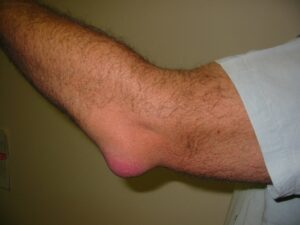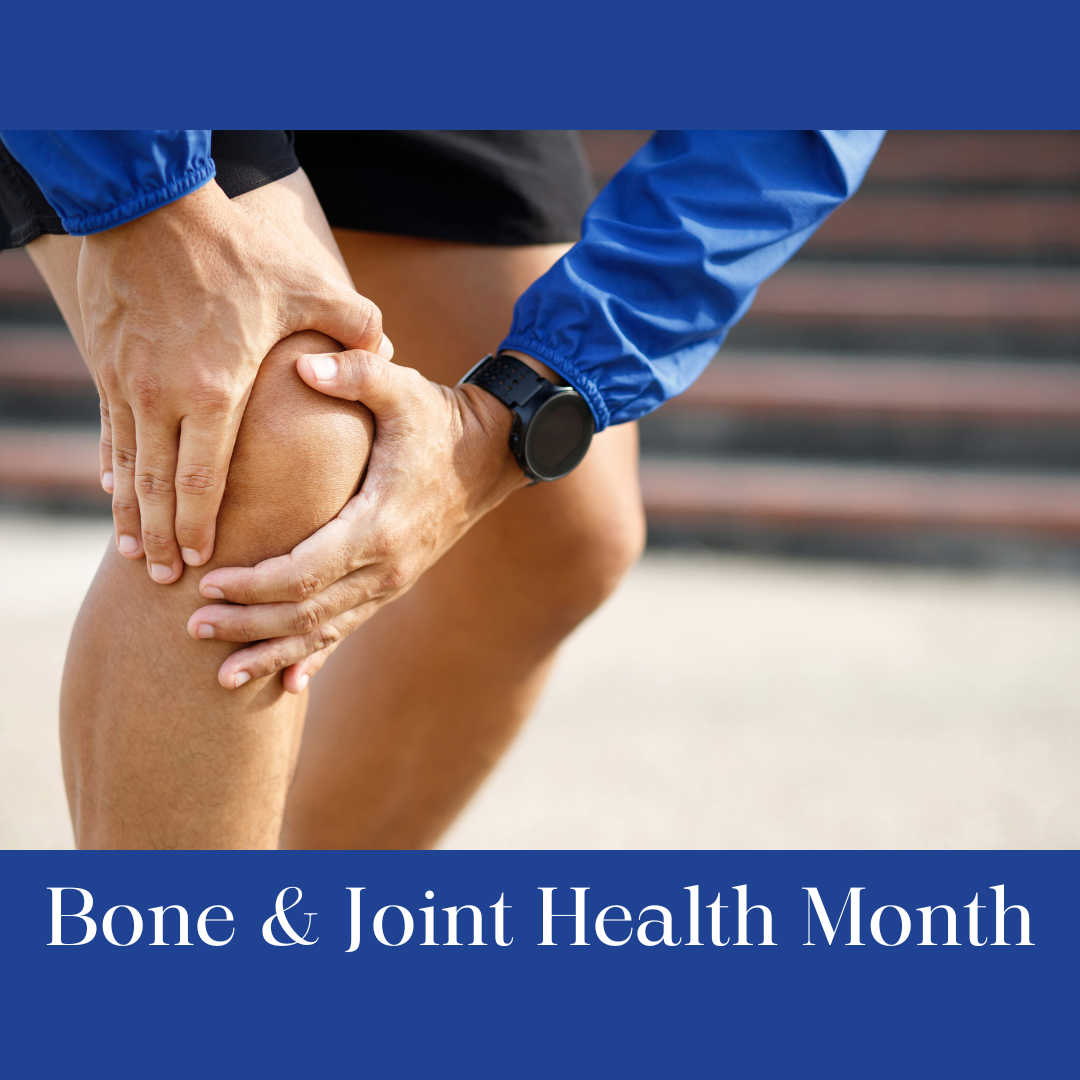The team at River Bend Medical Associates want to focus on things you can do to stay healthy and the importance of preventing, managing, and treating bone and joint issues.
Your bones and joints play a pivotal role in providing structure, anchoring muscles, protecting organs, and storing calcium in your body.
Prevention is, by far, the most effective way to promote bone health. While it is important to build strong and healthy bones during childhood, you can take steps as an adult to protect your bone and joint health.
Things you can do to lower your risk for bone and joint issues include:

- Eat a balanced diet, including calcium and vitamin D.
- Avoid activities that include repetitive joint movements.
- Stay active – engage in regular weight-bearing exercise.
- Strengthen muscles around weight-bearing joints (like your knees).
- Maintain a healthy body weight.
- Don’t overuse a painful joint during activities or at work.
- Do not drink alcohol in large amounts.
- Do not smoke.
- If you have gout, avoid foods known to make it worse.
- Take medication as prescribed.
- Talk to your doctor.
There are over 200 bones in the human body and over 200 joints that connect those bones. Many conditions can impact your bones, including over 100 types of arthritis alone! Here are 5 of the most common conditions that affect bone and joint health.
Common Bone and Joint Conditions
Osteoarthritis
Osteoarthritis, or OA, is by far the most common joint condition affecting over 32 million adults in the US, according to the CDC. Osteoarthritis occurs when the cartilage within a joint or joint wears down so the bones rub together, resulting in swelling and stiffness.
Symptoms of Osteoarthritis include joint pain, swelling, and stiffness.
Causes or risk factors of Osteoarthritis include:
- History of fractures or other joint injuries.
- Family history of osteoarthritis.
- Being overweight or obese.
- Repetitive movement or overuse joint injury.
- Certain medical conditions.
- History of joint surgery.
- Joints that do not form correctly.

Bursitis
Bursitis is the irritation and swelling of a bursa (a fluid-filled sac that acts like a cushion between tendons, muscles, and joints). The most common locations for bursitis are in the hip, elbow, and shoulder.
Some symptoms of Bursitis are joint pain, tenderness, swelling, redness, or warmth over or surrounding the joint, and aching or stiffness when moving the affected joint.
In some cases, the cause of bursitis can’t be identified, but it is generally believed to be caused by overuse or repetitive impact on the joint area (even mild). Other causes can include injury or trauma, inflammatory arthritis such as rheumatoid arthritis, gout, or infection.
Osteoporosis
Osteoporosis is the most common bone disease. Women (especially older women) are more likely to get osteoporosis than men. Osteoporosis causes bones to become weak and break easily. A fracture can occur in any bone but is most common in the hip, spine (vertebrae), and wrist.
Osteoporosis is often referred to as a “silent disease” because there are no symptoms until a bone breaks.
Causes or risk factors of Osteoporosis include:
- Smoking
- Family history of osteoporosis
- Excessive alcohol use
- A decrease in estrogen levels at the time of menopause
- A decline in testosterone levels in men at any age
- Low body weight
- Certain medical conditions and medications
Rheumatoid Arthritis
RA, or rheumatoid arthritis, is a chronic (long-term) auto-immune disorder that leads to inflammation of the joints and surrounding areas. Rheumatoid arthritis can develop at any age but is more common in middle age.
Rheumatoid arthritis symptoms can include stiff, swollen, and painful joints and stiffness in the morning that lasts more than an hour.
The exact cause of rheumatoid arthritis is unknown. Medical researchers believe that infections, hormone changes, and genetic factors are linked to RA.
Gout
Gout is a painful type of inflammatory arthritis that causes swelling in a joint. Gout most often affects the big toe, but can also occur in joints in the ankle, knee, feet, hand, or elbow.
Gout flare-ups occur when high levels of uric acid build up in your body forming sharp crystals in and around a joint. Gout flares often happen at night and can last a week or two before resolving.
Gout symptoms often include sudden swelling, intense joint pain, discoloration or redness, stiffness, tenderness, or painful sensitivity even to mild touch.
High levels of uric acid cause gout. Some factors may increase your risk of developing gout, including health conditions like diabetes, high blood pressure, kidney disease, blood cancer, obesity, and congestive heart failure.
Other risk factors for gout are:
- Using some water pills or diuretics can be associated with gout flare-ups.
- Excess alcohol use.
- Family history of gout.
- Certain medications.
- Eating foods that are high in purines such as organ meats, shellfish, processed foods, and foods that contain high fructose corn syrup.
Talk to Your Doctor

Talk to your family doctor if you have joint pain or other arthritis symptoms. It’s important to get a specific diagnosis as soon as possible so you can start treatment. Early and effective treatment can help to minimize symptoms and prevent bone and joint health issues from getting worse. This is especially true for certain forms of arthritis like RA (rheumatoid arthritis), Lupus, or gout.
You can play a central role in managing your arthritis by practicing healthy habits, attending regular appointments with your healthcare provider, and following your recommended treatment plan. This is particularly important if you also have other chronic conditions, like diabetes or heart disease.
Talking to your doctor about your risk for bone health and joint conditions can help you understand what you need to do to stay healthy. Whether you have concerns about bone and joint health, or it’s just time for your annual visit, contact the caring professionals at River Bend Medical Associates for an appointment today. Your family doctor understands your unique medical history and will be able to provide you with a personalized evaluation and, if necessary, a treatment plan to help you maintain good health and peace of mind.
For more information on our family medical practice, or to make an appointment, contact River Bend Medical Associates or call 916-392-4000.


